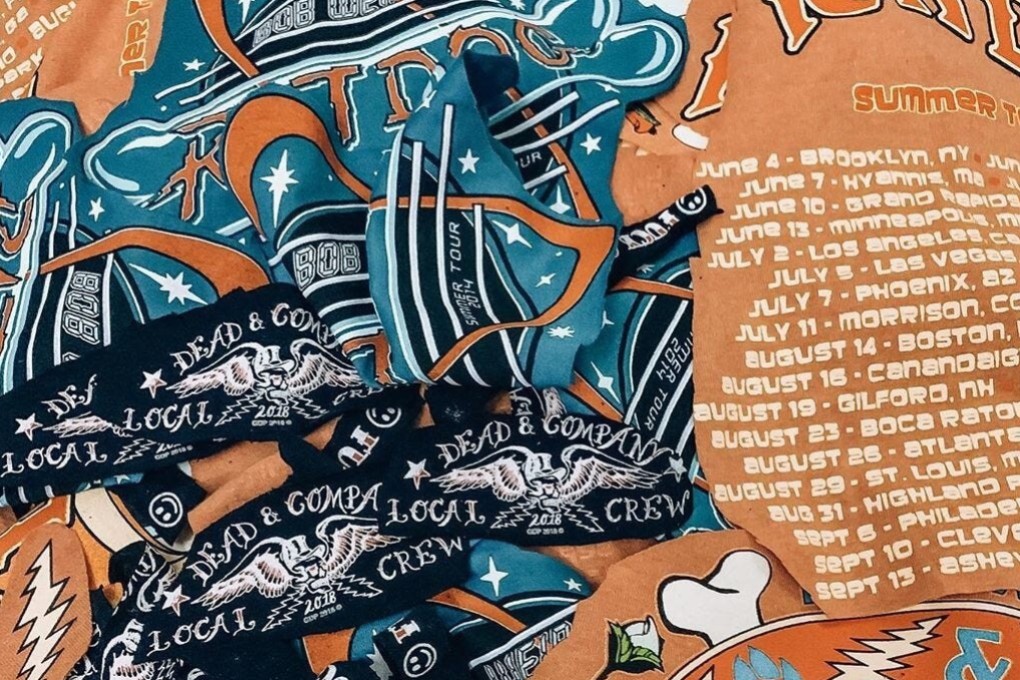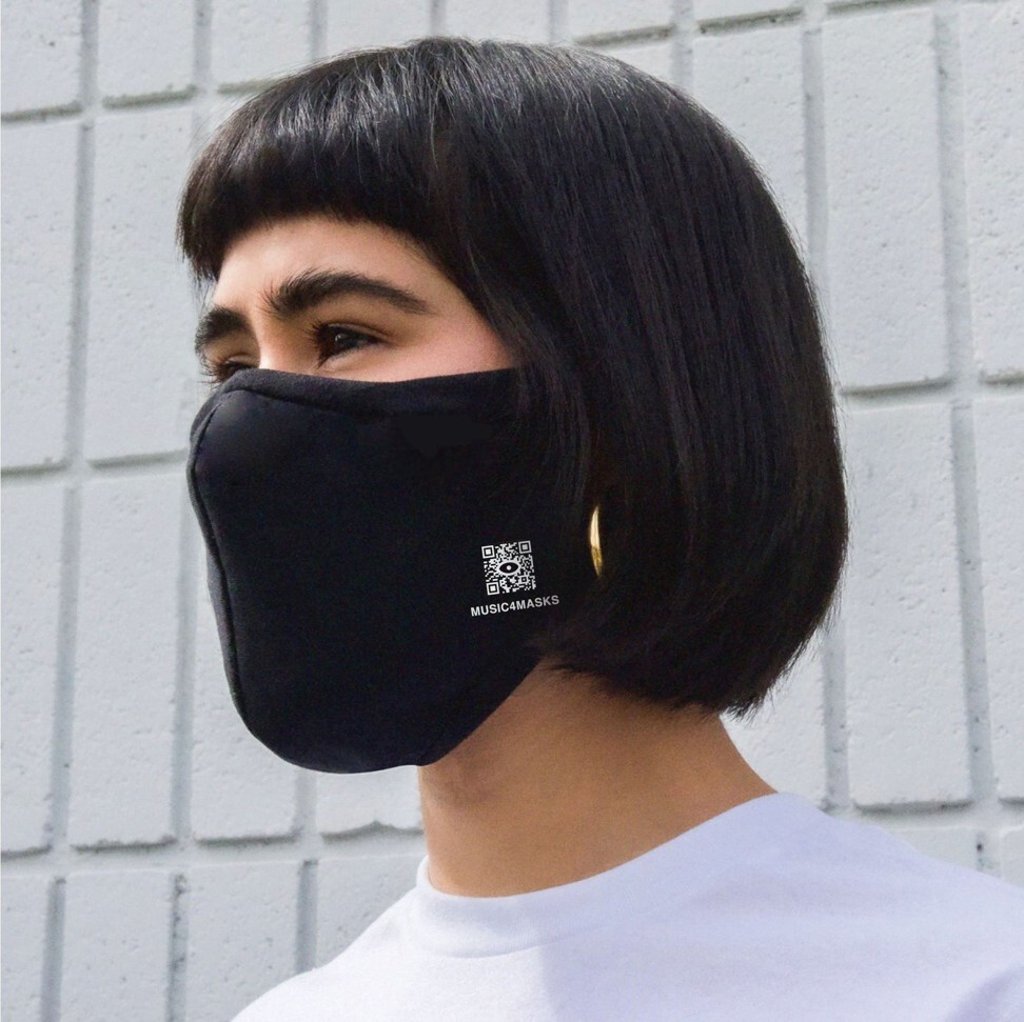Advertisement
Concert T-shirts cut up to make face masks in Covid-19 fight, and The Grateful Dead’s Bob Weir is among musicians donating unsold tees
- US T-shirt company Everywhere is making face masks from unsold band shirts and donating them to charities and facilities in need
- When members of The Grateful Dead and Widespread Panic heard about it, they donated about 5,000 T-shirts for the operation, which has distributed 20,000 masks
Reading Time:3 minutes
Why you can trust SCMP

If not for the coronavirus pandemic, concert venues across the world would be alive this summer with the sounds of music.
But Covid-19 pressed pause on most live performances, leaving live-streamed gigs as the safest way to connect musicians and fans. While concert tickets can be rebated, concert T-shirts are sitting in boxes, some unsold from past shows, others made in advance of now-cancelled or postponed spring and summer tours.
So US T-shirt company Everywhere, which makes concert tees and other products from recycled material, began making face masks from its material and donating them to charities and facilities in need as the pandemic continued.
Advertisement
Everywhere, which is based in Chicago in the US state of Illinois, had been making shirts for the summer tour of Dead & Company, which includes former members of American rock band the Grateful Dead including singer/guitarist Bob Weir. After Weir learned about the project, dubbed Music4Masks, he told friend and Widespread Panic guitarist Dave Schools about it; both donated shirts and enthusiastically talked up the project to other musicians.

Advertisement
“We have all kinds of T-shirts from all kinds of tours that had never got sold. This is something to do with them,” Weir said. “I suppose we could have just given them away to homeless folks or something like that, but right now this seems to be a more pressing issue.”
Advertisement
Select Voice
Select Speed
1.00x